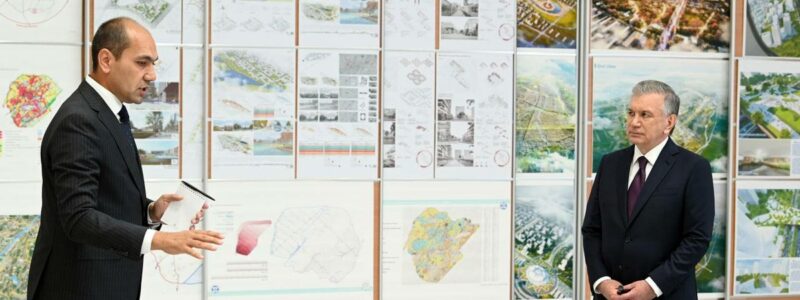
On October 9 this year, President of Uzbekistan Shavkat Mirziyoyev familiarized himself with the draft master plan for the city of Tashkent.
Currently, the city’s territory is 43,822 hectares and the population is over 3 million people. These figures will undoubtedly grow in the future. In this regard, a master plan for Tashkent until 2045 has been developed.
According to the project, the territory of Tashkent will be divided into three zones. The conservation zone will ensure the preservation of cultural heritage sites, historical sites, buildings, and green areas. In the reconstruction zone, additional construction will be possible based on master plans. In the renovation zone, new construction will be carried out on the site of old housing and dilapidated buildings, as well as their repair.
In particular, it is planned to triple the area of green spaces in Tashkent and its environs to 25,000 hectares. This will increase the area of green space per capita from the current 3 to 6 square meters.
According to the requirements of urban planning, residents should be able to reach the nearest kindergarten, school, hospital, shopping and service facilities from their place of residence in no more than 15 minutes. In this regard, the public transportation network will be expanded, the number of hubs and stops will be increased, new roads will be built and metro bus routes will be organized.
Tashkent’s growth is putting additional pressure on the city’s electricity, water and sewerage infrastructure. The new master plan includes measures to increase the capacity of these systems to ensure sustainable operation.
The President of Uzbekistan has set a goal to turn Tashkent into a metropolis with a population of at least 7.5 million people. To this end, it is planned to develop the districts of Tashkent region – Kibray, Zangiat, Yukorichirchik, Urtachirchik and Tashkent – on the basis of a single agglomeration with the capital.
The project is aimed at creating comfortable living and working conditions in a fast-growing metropolis, which will make Tashkent even more environmentally friendly and modern.